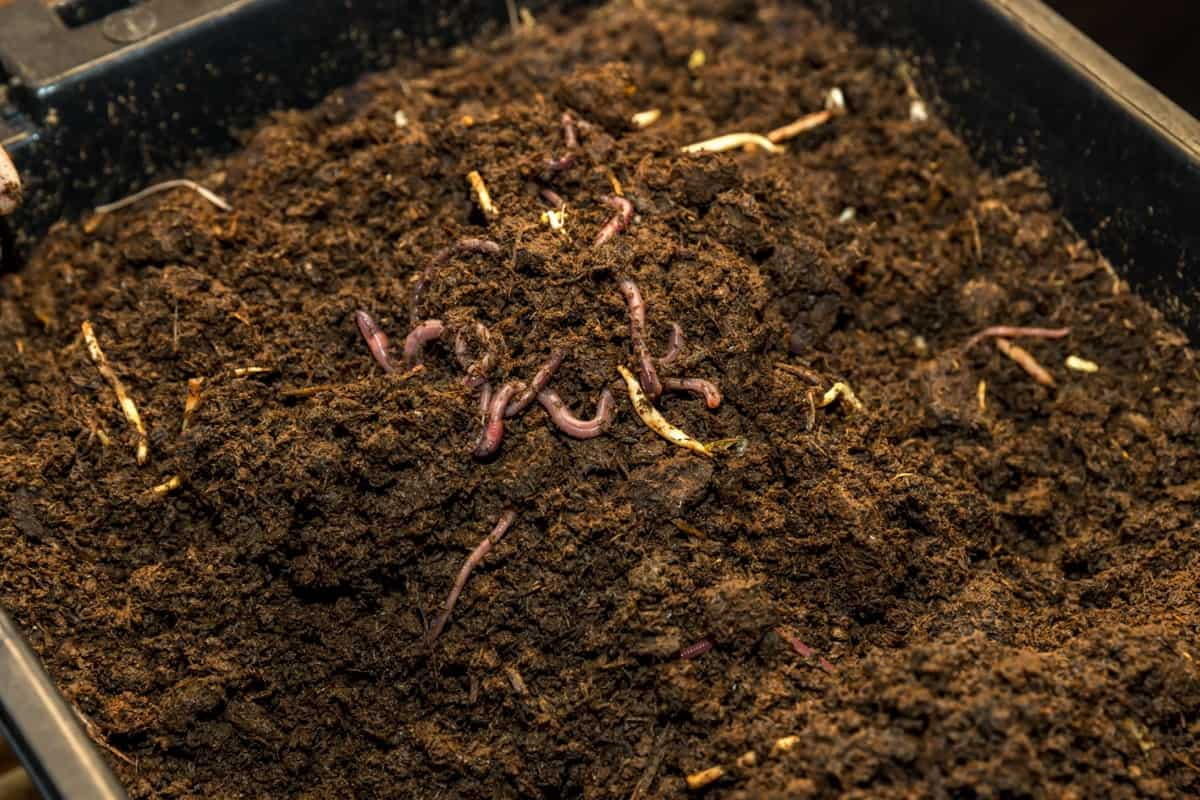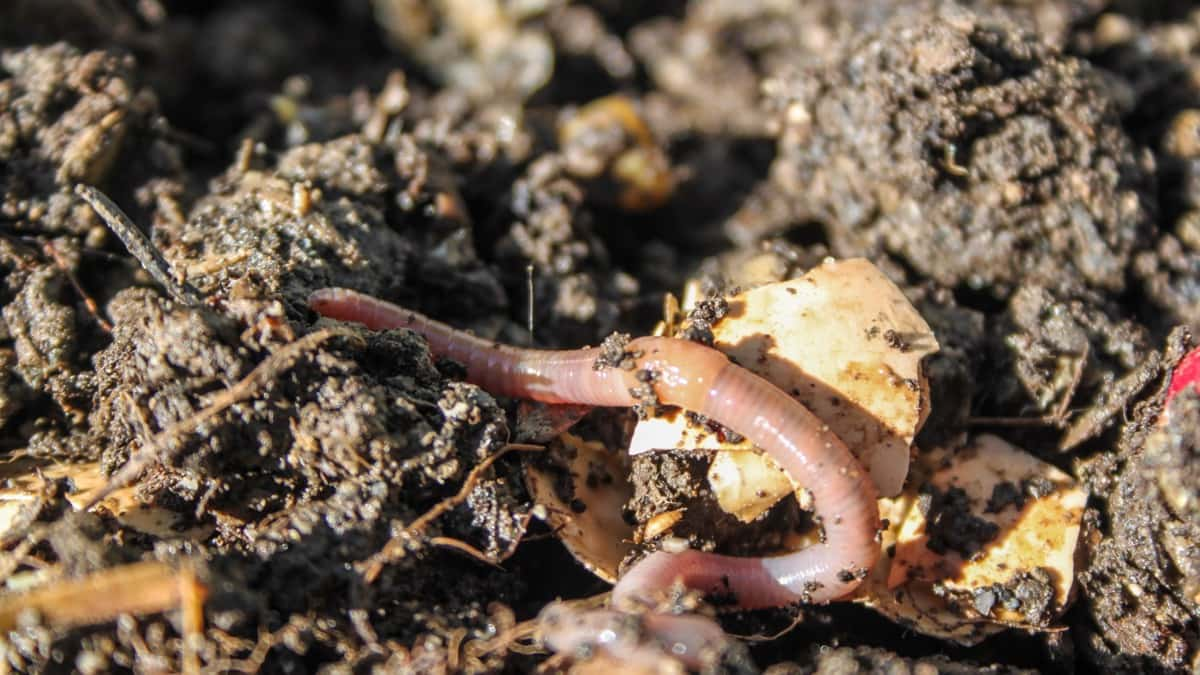Vermicompost is an organic fertilizer produced from earthworms’ castings or excrement. An excellent soil amendment enhances soil fertility, structure, and quality. Vermicomposting is a sustainable and profitable business idea that can be started at any scale, from small-scale backyard operations to large-scale commercial ventures.

This article will discuss the key aspects of starting a commercial vermicompost business. Below we learn the vermicomposting business plan, the profitability and profit margin, and the steps to start a vermicomposting business.
How to Start Commercial Vermicompost Business Plan
Market Analysis
The first step in starting a commercial vermicompost business is to conduct market research to determine the demand and potential customers. Some potential markets for vermicompost include:
- Agriculture: Farmers and gardeners use vermicompost to improve soil fertility, increase crop yield, and reduce chemical inputs.
- Horticulture: Nurseries, landscapers, and greenhouse growers use vermicompost to promote plant growth and health.
- Home gardening: Home gardeners use vermicompost to improve soil structure, increase water retention, and reduce plant diseases.
Business Plan
Once you have identified your target market, developing a business plan is next. A business plan will help you determine your business idea’s feasibility, outline your objectives and strategies, and provide a roadmap for your operations. The following are critical elements of a vermicompost business plan:
- Products/services: This section describes the vermicompost products you will produce, the production process, and quality control measures.
- Market analysis: This section provides a detailed analysis of your target market, including customer demographics, market size, trends, and competition.
- Marketing and sales strategies: This section outlines your marketing and sales strategies, including product promotion, pricing, distribution channels, and customer service.
- Operations and management: This section describes your production process, equipment and facilities, staffing, and management structure.
- Financial projections: This section provides a financial forecast of your business, including revenue, expenses, profits, and cash flow projections.
Location and Facilities
The location of your vermicompost business is crucial for the success of your operations. You will need to consider the availability of raw materials, access to markets, and proximity to transportation and logistics. Your production facility should have the necessary equipment, including shredders, mixers, screening equipment, and storage facilities.
Raw Materials
The raw materials required for vermicomposting include organic waste materials such as food waste, yard waste, animal manure, and agricultural residues. It is essential to source high-quality, consistent, and contaminant-free raw materials to produce high-quality vermicompost.
Earthworms
The earthworms used for vermicomposting are typically red wigglers or Eisenia fetida. The earthworms are responsible for converting the organic waste into vermicompost through their digestive process. Maintaining a healthy and productive worm population is essential by providing them with optimal conditions such as the right food, moisture, temperature, and ventilation.
Production Process
The vermicomposting process involves several steps to convert organic waste into nutrient-rich vermicompost. Here are the steps involved in the production process:
Pre-composting: The first step in vermicomposting is to pre-compost the raw organic material. The pre-composting process involves breaking down the raw material using microorganisms to create an ideal environment for the earthworms to thrive. The pre-composting process can take two to four weeks, depending on the temperature, moisture, and carbon-to-nitrogen ratio.
Feeding the earthworms: After the pre-composting process, the earthworms are introduced to the pre-composted material. The earthworms eat the organic waste and process it. They then leave behind their””castings,” which are like their waste. Earthworms can eat their body weight in organic waste daily, making them efficient composters
In case you missed it: Neem Rich Vermicompost for Garden Plants: Unlock and Boost the Power of Neem

Collecting and processing the castings: The castings or excrement produced by the earthworms are collected and processed into vermicompost. The collected castings are passed through screens to remove undigested material, debris, or earthworms. The screened castings are then aged or cured for several weeks to allow for the development of beneficial microorganisms.
Quality Control
Quality control is essential for producing high-quality vermicompost that meets customer requirements and standards. You should establish quality control procedures such as regular testing of the vermicompost for nutrient content, pH, and moisture levels. Following good manufacturing practices, such as maintaining a clean and hygienic production facility, is also important to prevent contamination.
Packaging and Distribution
Once the vermicompost has cured, it is packaged and prepared for distribution. The Vermicompost can be sold in various forms, such as bulk, bags, or containers. The packaging should be durable, moisture-resistant, and clearly labeled with product information, instructions for use, and safety warnings.
Marketing and Sales
Marketing and sales are key components of a successful vermicompost business. You should develop a marketing strategy that targets your potential customers, identifies your unique selling proposition, and communicates the benefits of vermicompost. You can use various marketing channels, such as social media, trade shows, and word-of-mouth referrals, to promote your product. You should also establish distribution channels that reach your target market, such as direct sales, online sales, and partnerships with local retailers.
Regulations and Permits
Before starting a vermicomposting business, you should research and comply with relevant regulations and permits in your area. This may include environmental permits, business licenses, and zoning requirements.
Financial Planning
Starting a commercial vermicompost business requires a significant upfront investment in equipment, facilities, and raw materials. You must develop a financial plan outlining your funding sources, startup costs, operating expenses, and revenue projections. You may need to consider financing options such as loans, grants, or investors to secure the necessary funding.
Profitability and Profit Margin
The profitability of a commercial vermicomposting business depends on several factors, such as the scale of operations, production costs, pricing strategy, and market demand. However, a well-managed vermicomposting business can be profitable due to the increasing demand for organic fertilizers and soil amendments.
In case you missed it: How and When to Apply Organic Vermicompost Fertilizer Manure: For Your Indoor, Terrace, and Container Plants

The profit margin of a commercial vermicomposting business can range from 15% to 50%, depending on the market conditions, competition, and production costs. However, a 30% to 40% profit margin is a reasonable expectation for a well-managed commercial vermicomposting business.
Conclusion
Starting a commercial vermicompost business can be a rewarding and profitable venture. It requires careful planning, market research, and attention to detail to produce high-quality vermicompost and reach your target market.
- Feed Your Flock for Less: Top 10 Tips to Save on Chicken Feed
- Ultimate Guide to Ossabaw Island Hog: Breeding, Raising, Diet, and Care
- Hatching Answers: The Top 10 Reasons Your Chickens Aren’t Laying Eggs
- Eggs and Economics: Breaking Down the Cost of Raising Backyard Chickens
- Defend Your Greens: Proven Methods to Keep Iguanas Out of Your Garden
- Ultimate Guide to Cinnamon Queen Chicken: A Comprehensive Guide for Beginners
- Ultimate Guide to California Tan Chicken: Breeding, Raising, Diet, Egg-Production and Care
- Ultimate Guide to Marsh Daisy Chicken: Breeding, Raising, Diet, and Care
- 10 Types of Chicken Farming Businesses You Can Start for Profits